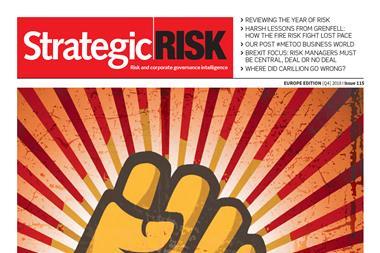Christopher Huhne, MEP discusses the complex business world in which European companies now operate.
The business environment in Europe is changing more rapidly than at any time in the post-war period, and businesses that fail to wake up ro the new challenges will die. Change management is crucial, and part of that change management has to include corporate governance. Increased transparency and accountability - particularly to shareholders - have to be the new watchwords of successful European public companies.
First, there is a new competitive environment in the marketplace. It is far more difficult lo price products or services at healthy margins because two inter-related factors are working like boll weevils at the foundations of profitability. The introduction of the euro in eleven member states of the European Union - and Greece will be the twelfth soon - brings your competitor far closer. Economic studies show that countries which share a currency do three times as much trade with each other as countries that do not. The simple existence of a separate currency - even in a free trade area such as North America - can enable businesses to maintain price differentials that one would normally only see over a distance of 1,500 miles within a single market. Suddenly, Europe has shrunk, and has become more competitive. At the same time, c-commerce is growing very rapidly. Although e-commerce in Europe, at the beginning of 2000, was running at only a third of the $ 17bn annual rate in the USA, it is catching up quickly. Moreover, it is particularly rapid in business to business transactions where the internet can be used to simulate an auction market. Three leading car makers have already signalled that they will award contracts to component suppliers on the basis of internet tenders.
So, in business-to-business sales, there is a growing commoditisation - an ability to compete only on price, as a standard is given - which again puts enormous pressure on margins. And, at the retail end of many .businesses, the old comfort in brand names also appears to be eroding as consumers are increasingly sceptical about brands and value for money. As a result, Unilever has just announced that it will scrap many of its venerable brands.
As if this tumult of change was not enough, today's hoards have to face a revolution in the market for corporate control in Europe as well. Again, this is largely a result of the euro, which has ended the currency segmentation of the national markets, and enabled institutional investors to build big pan-European portfolios without taking currency risks. As a result, a bank in one eurozone country is increasingly compared with its peer in another; a media company with another media company and so forth.
The push towards liberalisation has removed many of the traditional obstacles to take-overs - even if they are hostile, as initially in the Vodafone bid for Manncsmann. And boards can raise finance on an unimagined scale precisely because of the new, more liquid and deeper European capital markets. Olivetti's bid for Telecom Italia would probably not have been possible in the old, segmented national markets.
In this context, companies need to review their corporate governance to ensure that they not only apply best practice, but are seen to do so. Having the confidence of Europe's big investors requires not only commitment and experience, but also the ability to set out a convincing case for the strategy of the company, and to bring the other stakeholders along with the project.
If a company is to maintain investor confidence, it needs a steady programme for investor relations with a real commitment to communication. The bigger the market, the less likely it is that any investor will necessarily know your company, particularly if there is no easy name-recognition and the company is in another member state to the investor. For these reasons, the openness with which the company discusses its strategy and accounts - and is prepared to open up to such third-party assessments as broker reviews and credit ratings -is a key signal of likely future success. In the new Europe, forward-looking corporate governance matters as never before.



















